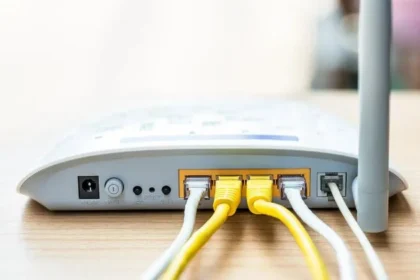Hearing loss is one of the most prevalent health issues, affecting people irrespective of their age and gender throughout the world. Studies have revealed that every 1 in 8 people, or around 13% of the United States population aged more than 12, are suffering from hearing loss. In 2019, approximately 72.88 million people in the US had hearing loss, making it a major health concern. Hearing aids aid people with such issues to a certain extent, offering them help in their hearing process.
However, for people diagnosed with severe hearing loss, hearing aids will not be beneficial. For them, cochlear implants can be a good option.
What is a cochlear implant?
A cochlear implant is a small implantable electronic device that helps to provide a useful hearing sensation to a person with severe to profound deafness. These implants are very different from normal hearing aids that just amplify sound. Cochlear Implants bypass the damaged portion of the ear and electrically stimulate the auditory nerve directly, which sends signals to the brain.
These implants have an external part that resides right behind the ear and an internal part that is surgically implanted under the skin. The external portion consists of a microphone, sound processor and transmitter system. The implanted receiver and the electrode system are placed internally.
Cochlear implants use a sound processor placed right behind the ear and draw sounds from the outside portion of the ear, sending signals to the receiver placed under the skin. The receiver then sends down the signals through a thin wire having ting electrodes placed in the inner ear or cochlea. These signals trigger the cochlear nerve to send the signals to the brain, which then hears the sounds similar to what we call natural hearing but not the same.
Cochlear implants are useful for both adults and children. But like most other medical devices, it has its pros and cons.
Cochlear Implant: What are the benefits?
Cochlear Implant is a boon to people with moderate or severe hearing loss. It has several benefits but not everyone performs the same with this device.
- Improve Hearing Ability: Cochlear Implants provide the ability to hear and detect the presence of sound. Though it is not capable of restoring normal hearing. It can just improve hearing and provide a sense of sound.
- Enhanced Communication: People with cochlear implants are endowed with the ability to hear their own voice and significantly improve their intonation and pronunciation.
- Immediate effect on Adults: After a few sessions of significant therapy adults can experience the sense of hearing. Children need elaborate training after implantation to experience and improve their hearing.
- Understanding Speech: Cochlear Implants can help patients understand speech. If not that, they can lip-read, take phone calls, and even watch movies without captions and enjoy music.
However, not all people with cochlear implants can experience these benefits.
Cochlear Implants: What are the negative impacts?
Surgical Implantation of the device is generally considered safe but is associated with several complications and risk factors.
- One of the biggest limitations of cochlear implantation is that they do not work for people who have lost their sound wave perception due to complete cochlear damage.
- Cochlear Implant increases the risk of Meningitis. People with abnormally formed inner structures are more vulnerable to this rare but serious condition.
- Cerebrospinal fluid leakage can be another complication of the surgery. Fluids from the brain can leak through a hole in the inner ear or from elsewhere covering the brain, because of the surgical procedure.
- Residual hearing can sometimes be lost for some patients.
- Balance loss is very common in patients with cochlear implants.
- Facial paralysis or injury to the facial nerves. The nerve goes through the middle ear where the inner part of the device is implanted. Any injury to the nerve can cause temporary or permanent paralysis of the face on that side.
- Bleeding at the site of surgery.
- Loss of taste sensation.
- Tinnitus, a ringing or buzzing sound can be persistent in the ear.
- Infection, numbness, and other consequences can also be seen.
With Cochlear Implants, patients may not be able to hear at all. Moreover, if the device doesn’t work well or needs to be fixed, additional surgery is required to resolve the problem.
Conclusion
The outcomes of cochlear implants vary from patient to patient, depending on their level of hearing impairment. This implant works for those who used to have knowledge of speaking and reading prior to their hearing loss. Despite its varied benefits, not many can take up the surgery due to its high expense. Although the implant proves to be successful for many, its consequences are also to be considered.










